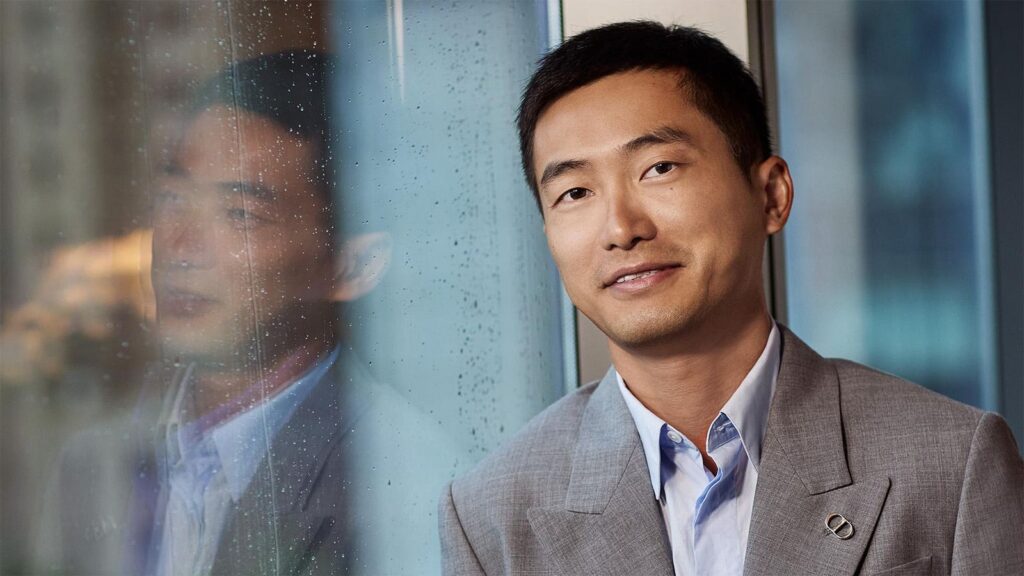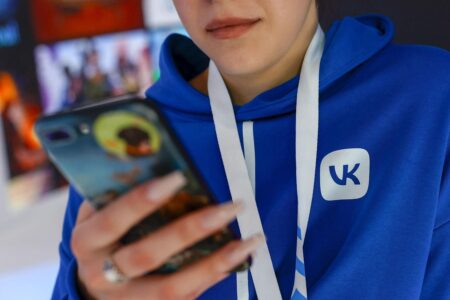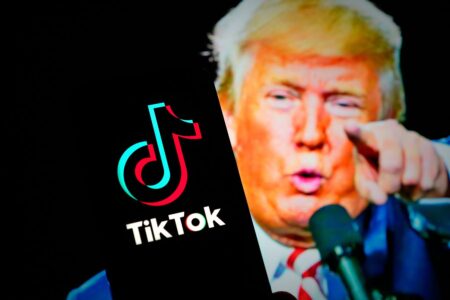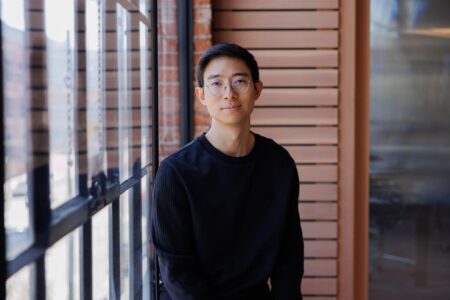Nathan Xu’s bootstrapped company has sold more than 1 million AI recording devices that transcribe and summarize the busy days of doctors, lawyers and business people — and he’s just getting started.
On a rainy July morning in a plush Amsterdam suburb, Nathan Xu has camped out at an Italian coffee shop for a full slate of meetings. Smiling, he asks if he can record our conversation and clips a slim memory stick-sized device to his shirt.
With just a click, the pill-shaped gadget starts recording, transcribing and summarizing everything he says — and everything anyone around him says too. The device, made by Xu’s San Francisco and Shenzen, China-based startup Plaud, can store up to 20 hours of recordings, turning that into searchable transcripts by connecting its microphones with Plaud’s own software and a bundle of AI tools like ChatGPT.
Dubbed the NotePin, the gadget has found a fast growing audience. Since launching in 2023, Xu has sold over 1 million such devices to doctors, lawyers, and other overworked folks with long days and short memories.
That makes Plaud an early front-runner in the race to move artificial intelligence tools out of your phone or laptop and onto your body. Xu’s team has already lapped some early American competition like Rabbit and the now defunct Humane that promised an AI-powered helper but delivered costly duds. Investors have plowed close to $350 million in the space with a new crop of startups like Omi and Limitless releasing wearables, while Amazon just snapped up Bee, a tiny note-taking device startup, for an undisclosed amount. In May OpenAI spent a stunning $6.4 billion to bring iPhone designer Jony Ive’s future AI device inhouse.
Plaud and its ilk are taking advantage of shifting norms in the tech industry where AI note taking bots are increasingly common participants in a conference call. With many shrugging off such transcriptionists inside the office, etiquette around recording outside the office is fraying. “Now, I assume that everything, even coffee meetings, are being recorded,” said New Wave VC cofounder Pia d’Iribarne, who backed Bee.
Well aware of the sprawling privacy implications of ubiquitous personal recording devices, Xu is careful to position Plaud devices as professional tools, not gadgets made to surreptitiously capture dinner table conversations. “We always recommend users get consent before they start recording,” he says carefully.
Unlike many AI companies Plaud not only makes money — it’s profitable. Between sales of the $159 NotePin and revenue from annual transcription plans starting at $99, the company is on track to bring in $250 million in annualized revenue this year with Xu bragging about margins on par with Apple’s 25% on every iPhone sold.
And unlike its rivals, Plaud has done it without handouts from venture capitalists. Xu, 34, bootstrapped the company by pooling his savings with his older cofounder Charles Liu, a Shenzhen factory owner, and launching a $1 million crowdfunding campaign. The pair still own the vast majority of the business. But competition is heating up and Plaud is facing a growing cohort of startups hoping their personal AI device can bite off a chunk of the $540 billion annual smartphone market.
“In the next decade, every single person is going to have a wearable AI device,” said Xu. “It will be more popular than smartphones.”
Before he started dabbling in AI, Xu was a Wuhan University graduate on a path to a dull but respectable career in banking until a class on innovation inspired him to create his own business — a website to help Chinese students pick and apply for colleges abroad.
He got a quick reality check when his idea turned out to be a dud that drained the cash his parents set aside for a masters degree. Xu’s second and third startups were equally ill starred, and he eventually found more success as a venture capitalist. During his first gig as an investor at Beijing-based fund China Growth Capital, Xu backed startups like Indonesian digital bank Akulaku, which is now valued at $2 billion. “He was always trying to find ways to be part of the frontier,” said Wayne Shiong, China Growth Capital’s cofounder. “Nathan is more of a Silicon Valley type than the typical Chinese entrepreneur.”
By 2021, he was itching to build another startup. On long trips to Shenzhen, the crucible for China’s electronics and hardware manufacturing, he spotted an opportunity: Local factories were churning out a baffling array of pens, bracelets and pendants with smart recorders, and transcription apps from the likes of Google were racking up downloads in the billions. But outside China, dictaphones were a dusty product line for slow-moving conglomerates like Sony, Olympus and Philips. Xu’s bet was that slick hardware with AI-powered tools would click with international shoppers.
He first teamed up with factory owner Charles Liu, a veteran builder of wearables like smart watches, on a tiny app-controlled recorder marketed for catching cheating spouses, named Izyrec. It was a hit but the pair saw a much bigger opportunity with the launch of ChatGPT in 2022, and wanted to start again with a cleaner brand. So they pivoted to Plaud, launching a Kickstarter campaign 2023 for the Note, a credit card-sized recording device that could stick to the back of a smartphone, designed for frantic business people running between meetings.
It netted over $1 million in pre-orders, despite the Plaud Note being three times the price of its Izyrec predecessor, with largely the same technical specs. This time though, it came bundled with an app powered by ChatGPT that would transcribe and summarize calls. Now Xu and his cofounder weren’t just selling gadgets — through the app they began selling a premium service that offered time-saving transcripts and summaries. “I wanted to create a beautiful business and software gives it a moat and sustainability,” he said.
They stuck to an international market: The twin threats of Xiaomi and Huawei’s slick AI-enabled wearables and Shenzhen’s army of copycat factories convinced them to only sell overseas. “In China you’re going to have overnight competition and will always have to compete hard on price,” said Xu.
When Xu started to realize that some of Plaud’s biggest fans were folks in meeting-heavy roles like doctors, lawyers and sales people, he began to build templates for common scenarios like patient consultations and sales calls. Earlier this year, Plaud acquired a small San Francisco-based startup building software for hospitals, hoping to speed the company’s move into healthcare. That gave them a crack at another booming market crowded with competition from billion-dollar startups like Abridge and giants like Microsoft-owned Nuance, which make AI transcription tools for doctors.
Last week, Xu met with journalists and tech bloggers in San Francisco for the launch of Plaud’s latest device: a new “pro” version of its Note device, now with a bigger battery, longer recording time and a tiny screen.
Xu wasn’t just in the United States for the product launch. He opened a Plaud office in San Francisco in 2023, and he’s now based there, along with 20 members of Plaud’s 200-strong team. “We have the best talent in Shenzhen for hardware design, and the best engineers in San Francisco for AI development,’ says Xu. But with the growing tensions between Washington D.C. and Beijing he’s keen to reinforce that Plaud is an American company. It’s registered in Delaware and its user data is securely stored in Amazon data centers on U.S. soil.
Dan Weirich, a Bay Area-based partner with Carbide Ventures who invested around $5 million in Plaud earlier this year, thinks that’s wise. “I’d like to be on the front page of the newspaper for having a big IPO, not for recording all of America’s conversations with Chinese technology,” he said.
Aside from geopolitics, covert taping of conversations with diminutive body-worn devices poses all kinds of ethical and legal issues. States like California have tough but rarely enforced laws for recording conversations without consent that can lead to fines or jail time.
Xu thinks Plaud’s focus on business meetings will keep it in safe territory. “We are going to be entirely productivity oriented,” he said. “We don’t mess with life at all.”
Dan Siroker, cofounder of Limitless, which sells an always-listening AI device to “augment” human memory, thinks such concerns are overblown and that fear of everything being recorded will pass. “If you remember the first smartphone everyone was paranoid about the camera. It was the end of privacy,” he says,
So were many of Silicon Valley’s other attempts to fully digitize our lives. Technologist Steve Mann used a wearable camera to post his life online way back in 1994, while the idea for video game streamer Twitch was born from cofounder Justin Kan live-broadcasting his every waking moment over an eight-month-period starting in 2007. Fans of Google’s smart glasses were derided as “glassholes,” but a decade on Meta is on track to sell two million pairs of its own AI Ray-Ban shades, which can record hundreds of photos and videos, this year.
Among the AI notetakers, Xu has a lead — for the time being. He’s keen to bolster Plaud’s balance sheet not only to put more American bums in board seats but to pull together a “$500 million” war chest. That’s lofty talk when wearable-maker Fitbit, which was selling $1.43 billion a year of its fitness tracker, was snapped up by Google in 2019 for just $2.1 billion. Xu has so far only raised small amounts from investors like Weirich’s Carbide Ventures and angel investor Patrick Kavanagh at an undisclosed valuation.
Still, around half of Plaud’s revenue now stems from its annual AI subscriptions, and Xu is pushing to build more tools to help business users, which could drive a valuation more inline with that of medical transcription startup Abridge, which was last valued at $5.3 billion. Then again, Apple or Google could just blow Plaud and its rivals out of the water with an app tweak, or a new device. The Cupertino-based giant has already quietly bundled free transcriptions of voice memos into its Apple Intelligence update and Zoom, Microsoft, and startups like Granola offer similar note-taking tools.
At least one former Apple insider thinks that Plaud is likely to end up as another evolutionary digital dead end, like other forgotten gadgets like Tivo TV recorders. “You have to look at each of these devices and say: ‘Are these merely features or a product?’” said Tony Fadell, one of the creators of the iPod and founder of Google-acquired Nest.
Xu is betting that it will be Apple or Microsoft to crack the code on a truly groundbreaking new AI device but that could be years away. Until then, Plaud has a loyal slice of well-heeled white collar workers that don’t want a phone call to interrupt their recording, and will pay up for the extra microphone and battery life. Xu also has bigger ideas not just for new ring-shaped, or ear bud-style gadgets, but how Plaud can “amplify human intelligence”. “It’s going to be an AI work companion and not just a voice recorder device,” he says.
Read the full article here

















